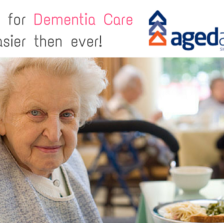
Describe the geriatricians and reactive team of care homes southend.
Geriatricians in locksmiths basildon :
The care homes southend need access to geriatricians and psychiatrists, and you know and think they benefit from district nurse support. But what’s been lovely in each area is that they just got to tap into the local resource and learn as they go. So surrey heath they have linked him with their Parkinson’s nurse, bringing new reflections and learning. So it’s a case of just gelling and making those local links and learning from their respective boroughs to agree on the final recipe. But they are indeed other people who could answer that far better than you’ve done your best if you like to add it as a final point. It would be healthy if you think they’ve got pc care homes teams and leads now, and, as part of that, it’s the multi-disciplinary approach.
As you can see, this is a handy thing to consider: how to support personalized and behavioral support. There they go here; she’s developed an online version of materials, how about that, so she’s also got a link to a wheeled study for people who may want to consider, which is all about behavioral support. They move along now but will move on to our next agenda item. If you are delighted, she is a real champion for developing dementia champions as part of the integrated care homes southend support team.

So over to you because their team is a model of what you’ve just been discussing. They briefly give you a low down of our team, so they are an integrated care home team across the west of Berkshire. So that covers reading Wokingham and Newberry and surrounding villages each locality has a proactive team and a reactive team the proactive team consists of physios speech-language therapists, and they focus on education, upskilling clinical support coaching, all of that stuff.
The reactive team of care home southend :
The care homes southend reactive team are a bunch of very skilled advanced nurse practitioners; we’ve got a couple of geriatricians and two pharmacists, and their focus is picking people up and keeping them in the home, treating them in the home rather than going into the hospital. So they, do you know, sub cuts, etc., comprehensive reviews. So they basically try and keep people away from the hospital unless they fractured is pretty much why people end up going back in, so initially, it was set up in 2013 and primarily looked at dementia. The dementia fund funded them, and then the CCGs decided to commission this service, and then in 2017, the advanced nurse Practitioners. The team’s reactive side joined us, now one big multi-disciplinary team.
So part of their role in all this was to identify that when they were doing training, as they said before, you can have training up. But is it ever taken, you know, onto the shop floor, and one of the things they picked up was the fact? The training was much more effective because the more they knew the homes, the more they got to know the residents. Suppose they were taking the patient or the resident as the center of the training. So when they do sort of tier one dementia training, they’ve got lots of uh examples within the home m of people and people that they know, so actually, the carers started to trust what they were saying they knew was coming in and not monitoring them. They knew that they were coming in to help.
